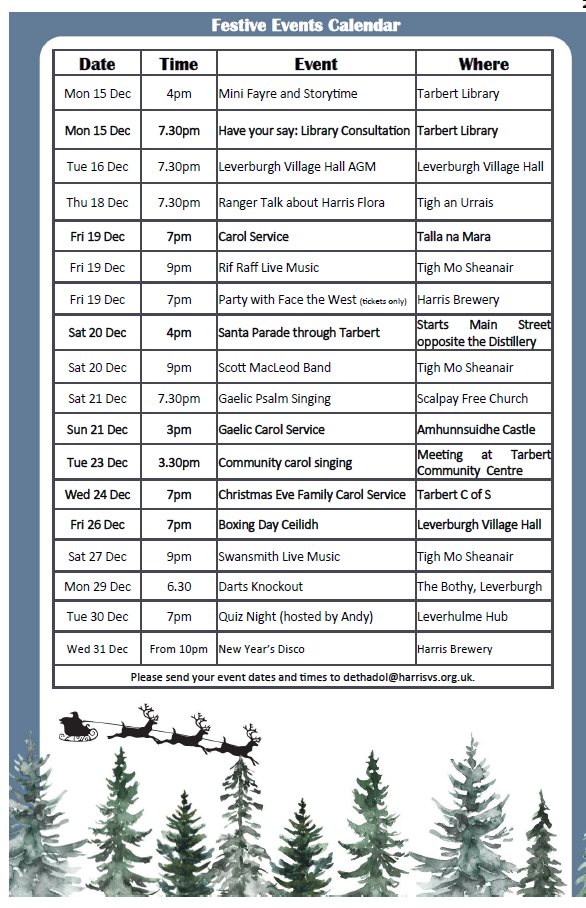Tea break: Paddy Sinclair
- manager23201
- Dec 11, 2024
- 5 min read
In our regular feature, we join a local for a tea break and find out how they spend their time and their time off. This week, we welcome Paddy Sinclair, Distiller in the Harris Distillery and shinty player.

Paddy, please tell us about yourself.
I was raised in the village of Tong north of the Clisham by a Hearach and a Glaswegian. I always thought of Lewis as the halfway point between the two. I first left the islands at 18 to go to Glasgow University where I studied a BSc in Genetics for four years. Glasgow is a brilliant city full of energy and fun people. I was already familiar with it due to visiting my late grandmother there, which is why I chose Glasgow Uni.
How did you get where you are today?
I stayed in Glasgow for 8 years and it was an important part of my life, making life-long friends and meeting my partner Juliette Desportes. However, the cianalas for the Hebrides was strong and I eventually made efforts to move back to the Highlands by attempting to get into the whisky industry. During lockdown, I applied to do an MSc in brewing and distilling at Herriot Watt through recommendations from others in the industry. It certainly kept me busy while stuck indoors. When the restrictions calmed down I got a job with Glasgow Distillery. I started by manning a pop-up shop in Buchanan Galleries, moved to packaging and bottling, and then became a trainee distiller in quite a short space of time. When the Isle of Harris Distillery advertised for a position of a distiller, I applied and was fortunate to get it. So with that, my lovely partner, Juliette, and our well-travelled cat, Musmus, we packed our wee Ford fiesta to the brim and headed north across the Minch to start a new chapter and the rest as they say is history.
How do you like to spend your time off?
Getting the job in Harris meant I could finally play a full season of shinty for my home team of Camanachd Leòdhais. Things have certainly changed since I started my shinty career. Players have come and gone, and others have stayed, evolved and matured. However, recently in the past two years, the team has gone from strength to strength. With the addition of a few key players from the mainland moving to the island and the breakthrough of younger islanders, the team has come into a new period of strength. Camanachd Leòdhais has now finished 2nd two years in a row, in MOWI's North division 2, showing that we have the capacity to win the league and advance to North division 1 for the first time in history. However, this is by no means a walk in the park and there will be some stiff competition in North division 2 before that is realised. That being said, with the right team and focus I do believe we can accomplish something spectacular next season.
Shinty is a very important sport to me. I feel it very strongly represents Highland culture and identity, and with that, it can also represent the Gaelic language. I grew up speaking Gàidhlig in primary school, secondary school, and at home. My mother's side are all completely native speakers, and my father learnt the language at a young age. So, when I was asked to captain the Scotland/Alba team for Iomain Cholmcille XV it was a great honour. The Colmcille is an annual international shinty-hurling event for Gaelic speakers based in Ireland and Scotland since 2007. A select team is chosen from all over Scotland, the main criteria being that the players are Gàidhlig speaking. This team then competes with one or two select teams from Ireland, similarly with the rule that their players have their native language, Gaeilge. The rules of the game are mixed to suit the clash between the two similar, yet extremely different sports. Hurling is primarily played in the air with shorter flatter sticks, or "hurls" and points can be scored by hitting the ball, or "sliotar", over the goals. Shinty, is mainly played on the ground, play in the air is common but is much more difficult to do. Under normal hurling rules, hurlers can catch the sliotar in their hands, whereas, in mixed rules, they can not, which can make the game feel a little less natural for the Irish Gaels. That being said, the Irish are extremely skilled with their hurls and are very fit as hurling is a fast-paced sport that requires plenty of running. Some say it is the fastest sport played on grass. Another difference is that in hurling a goal is worth 3 points and when the ball is hit above the goals it is worth 1 point. The hurling point system is the one adapted for the mixed rules.
Needless to say, I was a little apprehensive to face them in my first captaincy for the Alba side. Our team was strong, with a good mix of older experienced players and younger players who had never played in mixed rules. The Irish side were mainly young and fast players, however, they ultimately struggled to handle the more physical Scotland side and we came away with a win of 24-11. The team that was selected for the Albannaich were taken from all over, but, the majority were from the Hebrides. To have this many players selected from this region of the Highlands and Islands shows that the connection to Gàidhlig, shinty, and place is a strong one.
As well as international successes for shinty in the Outer Hebrides comes the new future of shinty, which is Harris shinty! We have started to take weekly shinty first sessions for the youth in Sir E Scott School. Many thanks to Emma MacKinnon for organising and setting up the shinty in Tarbert. The hope is one day to establish a solid base for shinty in Harris to maybe compete with our northern cousins and to share in victories across the Minch.
When not playing shinty, I enjoy surfing, running, hiking, camping and watching some good quality films.
What are your favourite places in Harris?
My mother's side of the family are from the small village of Hùisinis in the northwest of Harris, where my seanmhair and uncles still live. I would spend every summer there growing up alongside my older cousins and younger brother, playing on the machair and beaches. To then grow sleepy in front of a roaring fire and fall asleep to the sound of the Atlantic right by the window. Very happy memories of that place and it always brings me back when I visit.
It’s tea break time. What’s on the menu?
A big pot of strong breakfast tea with a side of any baking I can get my hands on!






Comments